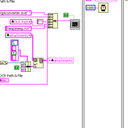Try113His and His139Arg polymorphisms in the microsomal epoxide hydrolase gene are not associated with risk of breast cancer.
Nyckelord
Abstrakt
Breast cancer may be caused by several factors, including polymorphisms in the microsomal epoxide hydrolase (mEH) gene. Previous work suggested an association between mEH polymorphism and risk of breast cancer, but the results have been inconsistent. PubMed, EMBASE, Google Scholar, and the Chinese National Knowledge Infrastructure database were systematically searched to identify relevant studies. A meta-analysis was performed to examine the association between Tyr113His and His139Arg mEH polymorphisms and susceptibility to breast cancer. Odds ratios (ORs) with 95 % confidence intervals (CIs) were calculated to assess the strength of the association. Seven studies involving 6,357 cases and 8,089 controls were included in this study. The Tyr113His mEH polymorphism did not affect breast cancer risk in the allelic contrast model (OR = 0.99, 95 % CI = 0.94-1.04, P = 0.58), the dominant genetic model (OR = 1.14, 95 % CI = 0.88-1.48, P = 0.33), or the recessive genetic model (OR = 1.03, 95 % CI = 0.96-1.10, P = 0.43). Similarly, the His139Arg mEH polymorphism was not associated with breast cancer risk in the allelic contrast model (OR = 0.97, 95 % CI = 0.91-1.04, P = 0.44), the dominant genetic model (OR = 1.01, 95 % CI = 0.84-1.21, P = 0.94), or the recessive genetic model (OR = 1.04, 95 % CI = 0.96-1.12, P = 0.35). The mEH polymorphisms Tyr113His and His139Arg are not risk factors for breast cancer. Further, large and well-designed studies are required to confirm this conclusion.


